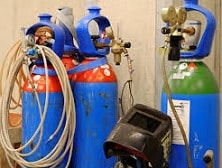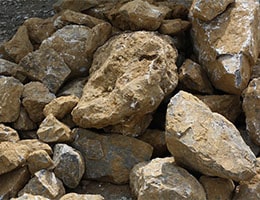 The adjective inert , which derives from the Latin word iners , has several uses. It may be someone or something that has no movement, does not register activity or cannot react .
The adjective inert , which derives from the Latin word iners , has several uses. It may be someone or something that has no movement, does not register activity or cannot react .
For example: "The child remained inert under the bed until the thief left the house" , "An inert prosecutor's office does not help the victims of a crime obtain justice" , "If the government remains inert in the face of the increase in unemployment, the social crisis will continue to advance .
Inert also refers to that which lacks life : "When the police entered the home, they found the old man inert on the floor" , "The man's inert body remained on the street for several hours" , "The hotel owner discovered the young man" inert in the room .
In the field of chemistry, this notion serves to define a thing that is not chemically reactive , that is, it cannot cause or participate in a chemical reaction . This phenomenon is defined as any thermodynamic process in which two or more substances (which are called reagents or reactants ) undergo a change in their molecular structure and their bonds to give rise to the emergence of a new substance (which is known as a product). . It should be noted that this substance that arises from the chemical reaction has different characteristics and properties than its predecessors.
A noble gas , on the other hand, is a substance that, under certain conditions of temperature and pressure , is non-reactive . Precisely because of this supposed lack of reactivity, in the past it was known as inert gas .
This apparent lack of reactivity in inert gases is generated because the electronic shells are full, making it difficult to lose or acquire electrons . Electronic shells are also known as electron shells and are defined as the distribution of an orbital with a given number of electrons orbiting the nucleus of an atom.
Today, however, it is known that these gases can also react and generate chemical compounds : for this reason, it is preferred to speak of noble gases . A clear example is xenon tetrafluoride .
It should be noted that the decision to classify noble gases as inert was not arbitrary at all. Even today, it is relatively expensive to make one of these substances part of a chemical reaction, since a large amount of energy is needed for it to take place (usually in the form of heat, radiation or pressure) and it can also be The use of catalysts (substances that serve to accelerate the chemical reaction process) is useful.
 It is also possible to use the word inert relatively, as occurs when talking about molecular nitrogen : it is said that under normal conditions it is inert and that it exists in the form of diatomic molecules (they are formed by two atoms, whether of the same chemical element or not). Since there is a very strong triple covalent bond in this molecule, it is not normal for it to react.
It is also possible to use the word inert relatively, as occurs when talking about molecular nitrogen : it is said that under normal conditions it is inert and that it exists in the form of diatomic molecules (they are formed by two atoms, whether of the same chemical element or not). Since there is a very strong triple covalent bond in this molecule, it is not normal for it to react.
That said, it is possible to generate a chemical reaction between nitrogen gas and lithium to give rise to lithium nitride, even though they are under normal conditions .
Pesticides can be made with ingredients classified into two large groups: inert and active. Inert ones are those that do not have toxic effects on the species that the product tries to combat, although this does not mean that it does not cause any negative consequences in other species or that it is not toxic to people.
An inert munition , finally, has its incendiary or explosive material removed or disabled. This means that these munitions cannot explode or cause damage.
